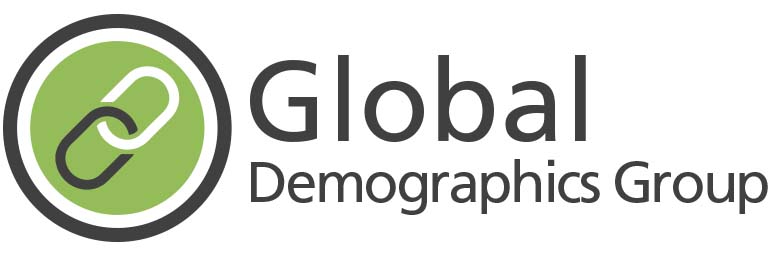Not if But When will the Covid-19 Hit the Housing Market?
One week after the lock-down started I wrote an article on how the stock market would rebound in a “V shape” because of the stimulus packages created around the world. I also disagreed with the mainstream predictions that it would be a protracted slow recovery. They were proven to be wrong so far.
I also said this would be similar to 2008 all over again with a sling shot effect to creating wealth!
In that same article I pointed out that the virus would act similarly to the seasonal flu virus and that it may also be gone as the weather gets hot, which usually ends the annual flu season. We are now told that the real virus numbers are 60% less than what we were advised by the mainstream – with all of their doom and gloom predictions. While I truly never wish to see anyone dying from any virus, more people have apparently died due to the lock-down. I guess no one thought about these effects when they started these lock-downs.
In the beginning of April I strengthened my own predictions by suggesting that we could make 100% on the sling shot. The pattern of the current recovery is similar to 2009-2010 when we made 133%, by riding the stimulus packages that were created to offset the 2008 Financial Crisis.
At the end of April I pointed out that we were right on track as the Nasdaq fund was reaching a 30% increase from the bottom of the market in March. None of this was hindsight as you all can read predictions in my past articles.
Lately I have been doing a lot of research on the backlash that is developing against China; even Africa is suing them. At first I was contemplating writing a new article to warn investors about China but I changed the topic after listening to Mark Moss about the coming housing crash in his video titled “2020 Mortgage Crisis Explained.” Who is he? Mark started buying repo- homes from the banks after the 1987-1992 stock market crash and the 1995 housing crash. He fixed and flipped over 100 homes and he owned over 200 rental homes, which made him 25 Million dollars in Real Estate value. So I would suggest that he knows the housing markets and that we should pay attention to him.
Mark pointed out that the housing market was one of the best investments in the last 50 years due to inflation. In 1940 before World War II the average home cost $2,938. By 1953 most of the veterans that returned home wanted to get married and own a home to raise a family. Consequently, the home prices soared by 1953 to $18,080. This was a Big price increase.
These families also created the Baby Boomers! 10 Million in Canada and 90 Million in the USA – by far the biggest portion of the population that drives the economy.
Before “trophy homes” started being built everywhere, the housing prices went up to $131,905, adjusted to $200,000 in today’s values by year 2000. After the “Tech bubble” crash in 2000, investors started to invest in Real Estate instead of the traditional markets. By 2007 that had driven the average home price up to $218,714 (adjusted to $269,343 in today’s values). By 2019 the average home price was $271,768 and this was across the country. Big cities like Vancouver, Toronto and Montreal were creating their own bubbles. Immigrants were over-bidding each other, which inflated the prices, not to mention the big “trophy homes” that contributed to increased property values.
So why did it grow so big?
After World War II the demand shot up and homes increased by 200%!
Interest rates dropped after the last wave of Baby Boomers entered the work force and inflation dropped from 12% to below 2%. The USA abandoned the Gold Standard, which created huge money supply and massive debt expansion. The housing prices in the USA have increased by 59% since the bottom of the housing market crash in 2012, mostly due to the 2008 Financial Crisis.
A key part to remember here is the delay.
So a crash is coming according to Mark Moss. Now that we know how the market grew, let’s examine why a crash may be inevitable.
AIR BNB “superhost” Bed & Breakfast chains are leveraged to the brink. Covid-19 has no one travelling and leaving these homes empty – defaults are coming!
Debt loads have increased for 23 straight quarters to $14.3 Trillion dollars. Consider that in 2008 only $700 Billion dollars collapsed the Banks!
Auto debt alone is $1.35 Trillion dollars, student debt is $1.42 Trillion dollars, and credit debt is $1.1 Trillion dollars in the USA.
All three, debt levels alone are higher than what it took for the 2008 Financial Crisis collapse to happen.
New homes sales are grinding to a halt because prospective homeowners are having difficulties in physically viewing homes.
There is now extreme job market uncertainty because there are 47 Million job losses in the USA. Unemployment rate may hit 32%, which probably means that Canada is facing similar percentages.
So who will want to buy a home in this market?
Home sales across North America have dropped by 35% – the lowest since 1991. Mortgage delinquencies have risen in the first quarter of 2020. Mortgage debt bubble in the USA is $10 Trillion dollars – up $150,000 Billion dollars in just the last two years and $30 Billion dollars in the first quarter of 2020.
35 Million people have applied for U.I.C. benefits in the USA alone. The jobless rate in the USA was recorded at 3.5% in February 2020 but there is speculation that it may be 15% (it may actually be closer to 20%) now.
So what is going to happen?
The Real Estate and the “new” economy may cause many Baby Boomers to lose their retirement income, unless they learn to use a “demographic approach”, which we teach. Some Baby Boomers may be selling their homes to make up the difference for lost income while the housing market values are higher.
But who can actually buy these homes?
First, the size of the next generation to follow Baby Boomers is so much smaller. Second, the prices are too high and Generation X has no money. Third, the Millennials also have no money and they seem to live more of a nomadic life style then the Baby Boomers. Therefore the demographics analysis shows a likely drop in Real Estate prices.
Mark points out that most of the market will fall and never recover. The population following the Baby Boomers will likely not purchase many homes, not to mention that many of them will inherit homes when Baby Boomer pass on. How far will these prices drop? How about back to the year 2000 levels? Japan lost 35% and never came back.
I remember back in 1993 when it was not the crash that caused homeowners to walk away from their homes. Instead, it was the mortgage renewals. When it came time to renew mortgages, the house values had dropped so much that owners had to come up with thousands of dollars they did not have in order qualify for their renewal. That is why Mark and others like him were able to buy so many repo homes.
Can you imagine the devastation if you owned a string of homes as each mortgage renews and cash is required every time?
According to Jason Hartman, cities like Vancouver, Toronto and Montreal were already “going down” before the Covid-19 outbreak and that the virus just accelerated the inevitable. It is not going to be pleasant for many people.
The key right now is to focus on capital protection.
In the book Missed Fortune 101, by Douglas R. Andrew, he asks the question: If what you thought to be the best way to save for retirement or to pay for your mortgage turned out NOT to be the best way, when would you want to know?
NOW is the time to discover the best way to safely accumulate more money. The sooner you empower yourself with the knowledge to attain financial independence, the greater your net worth will become. With my 38 years experience, I can definitely help you achieve financial success, especially now.
Douglas also points out that the most important elements of home equity management are maintaining liquidity and safety of principal, while creating the opportunity for home equity to grow in a separate side fund to be accessible in the event of an emergency. However, home equity has no rate of return when it is trapped in a house. There are ways to fix this problem.
So the best way to avoid financial problems and obtain financial freedom is to have an alternative plan, which I can help you with.
Whatever you do, do NOT become an Ostrich and bury your head in the sand. Heed this advise before financial problems becomes a reality in your life.

